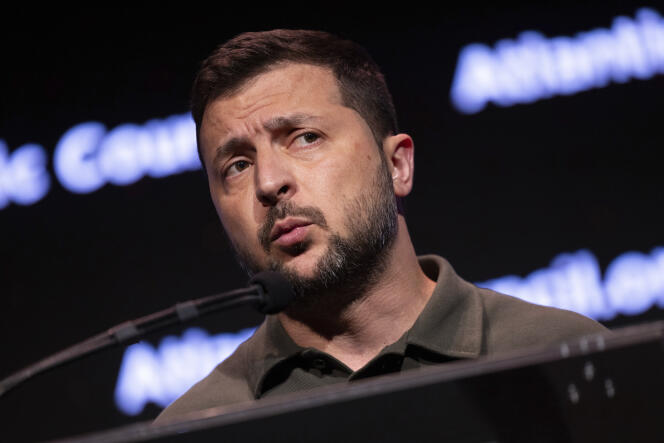


Ukrainian President Volodymyr Zelensky's diplomatic offensive at the UN General Assembly in New York was dealt a serious blow by one of his staunchest European supporters. On the evening of Wednesday, September 20, Poland announced that it was ceasing to supply arms to Kyiv. "We are no longer transferring any weapons to Ukraine," said Prime Minister Mateusz Morawiecki on the private television station Polsat News, in view of the grain dispute between the two countries.
This statement came just hours after Warsaw summoned the Ukrainian ambassador "as a matter of urgency" to protest against remarks made the previous day by Zelensky at the UN. Zelensky had accused some EU countries of "feigning solidarity by indirectly supporting Russia." For months now, Kyiv has been criticizing Poland's restrictions on imports of its crops in order to protect its farmers.
Morawiecki specified that the military hub in the southeastern town of Rzeszow, through which Western arms deliveries to Ukraine pass, would continue to operate without hindrance. But in the midst of the Ukrainian counter-offensive, the announcement of the suspension of Polish arms deliveries is likely to leave its mark on Kyiv and one of its most committed allies since the start of the Russian invasion. This could seriously tarnish the outcome of Zelensky's visit to the UN General Assembly in New York.
The Ukrainian president was all the more anxious to convince the leaders present at the UN this week that the recent G20 summit in New Delhi, whose conclusions Kyiv criticized as too favorable to Russia, had shown the limits of his diplomatic initiatives, particularly with emerging countries. "Ukraine has lost a bit of momentum, which is due to the fact that their counter-offensive on the ground is moving less quickly than hoped," noted a Western diplomat. In New York, for example, Kyiv had to cancel the meeting it had hoped to hold on its peace plan, following on from those in Copenhagen and Jeddah. In his usual khaki shirt, Zelensky put all his energy into pleading his country's cause from the sidelines of the fighting on the ground.
On Tuesday, in his first address to the General Assembly, he defended the principle of a "peace summit," the modalities of which are still uncertain, and tried to convince the assembly that Ukraine was not the only victim of Russia, which "weaponizes" everything including food. He also described Moscow's deportations of Ukrainian children as a "genocide."
You have 57.04% of this article left to read. The rest is for subscribers only.
